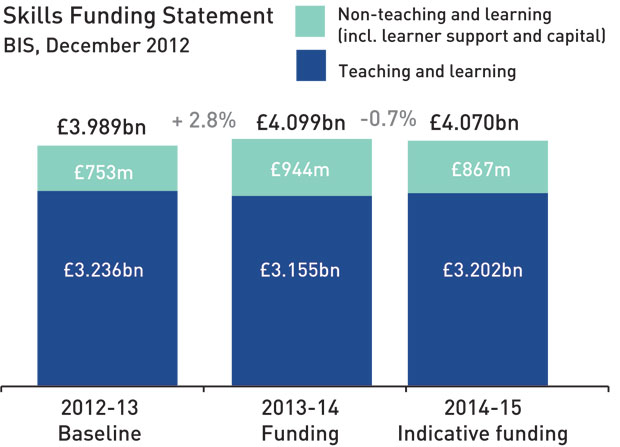There is much to welcome in the Richard Review (although paper exams should stay and employers should not design new qualifications on their own), says Sally Hunt of the University and Colleges Union
The Richard Review’s emphasis on an apprenticeship being a form of education to be held in high regard and its efforts to define a modern apprenticeship must be applauded.
The complete failings of the Work Programme (described by David Cameron as the biggest and boldest programme since the Great Depression) reinforced how important it is to ensure high-quality training.
We are pleased the review recognises the innovative work already being done by colleges with employers, and agree there needs to be a clearer definition of exactly what constitutes an apprenticeship with industry-specific targets for young people to achieve.
We also welcome the recognition that there are three parties to an apprenticeship — the apprentice, the employer and government.
It is helpful that Richard makes the point that the apprentice should be the key beneficiary. With that in mind, we would have liked a commitment that apprentices be more involved in determining vital elements such as curriculum, delivery and assessment. We have heard plenty from the employers and government over the years; it would be good to hear from the learners.
We have long called for stronger incentives for employers and believe that the review’s proposal for government funding for apprenticeships to be routed through National Insurance or tax system would get more on board.
We need firmer action to ensure employers actually do something with the large amounts of public money they are given. There needs to be a carrot and stick approach: the carrot is the funding that they receive . . . the stick is legislation to make sure that money is used for training. Put simply, if they don’t spend the money as they should, then it goes to those employers that will.
If they don’t spend the money as they should, then it goes to those employers that will”
We do not believe employers should be designing qualifications alone. The job should be led by the experts. The employers’ views are, of course important, but designing qualifications is not a simple task.
Similarly, we do not see competition as an effective approach to the design of new qualifications, when we have existing qualifications bodies set up to do that very job.
Introducing such a system is taking the idea of the market too far for even the most ardent free marketeer. It has the potential to damage fatally the qualification infrastructure with unsuccessful awarding bodies losing their expertise and potentially withdrawing from the market.
We do agree with some of the elements around assessment. Assessors should be external and neutral, for instance, although we cannot sanction the complete removal of paper exams. The understanding of the theory needs to be demonstrated as well as acquiring the skills.
As Richard identifies, off-site learning adds real value and should be reflected in assessment. There is also the issue of fees for over-24s. More apprenticeships are a good thing but, as well as being of high quality, they must be accessible to all.
Asking those aged 24 or more to pay up to £4,000 a year to work as an apprentice is likely to act as a deterrent. It also reneges on the tripartite system of sharing the cost that Richard identifies as the right way to fund apprenticeships.
Finally, the challenge will be to ensure that the review’s call to raise quality also addresses the pay and exploitation of some young apprentices. Currently one in five does not receive the statutory minimum wage and some find themselves on sub-standard schemes where employers simply use them as a cheap source of labour. This must be stamped out.
Sally Hunt is general secretary of the
University and Colleges Union

